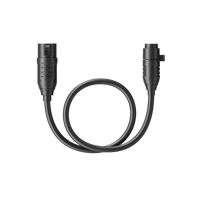Your cart is empty
Shop our productsSolar panels are a marvel of modern technology that makes going off the grid possible. Still, they would only be practical for energy independence with one crucial component: batteries. Making this kind of choice is like buying something else. You have to think about things such as how much energy the battery can hold, its life when it keeps going and stops - turning back into what we usually call 'dead,' taking care so that nothing goes wrong and spending money on getting all these features in the best way possible. Keep going and find out what kind of batteries are best for saving energy taken straight from the sun.
What Are Batteries for Solar Off-Grid?
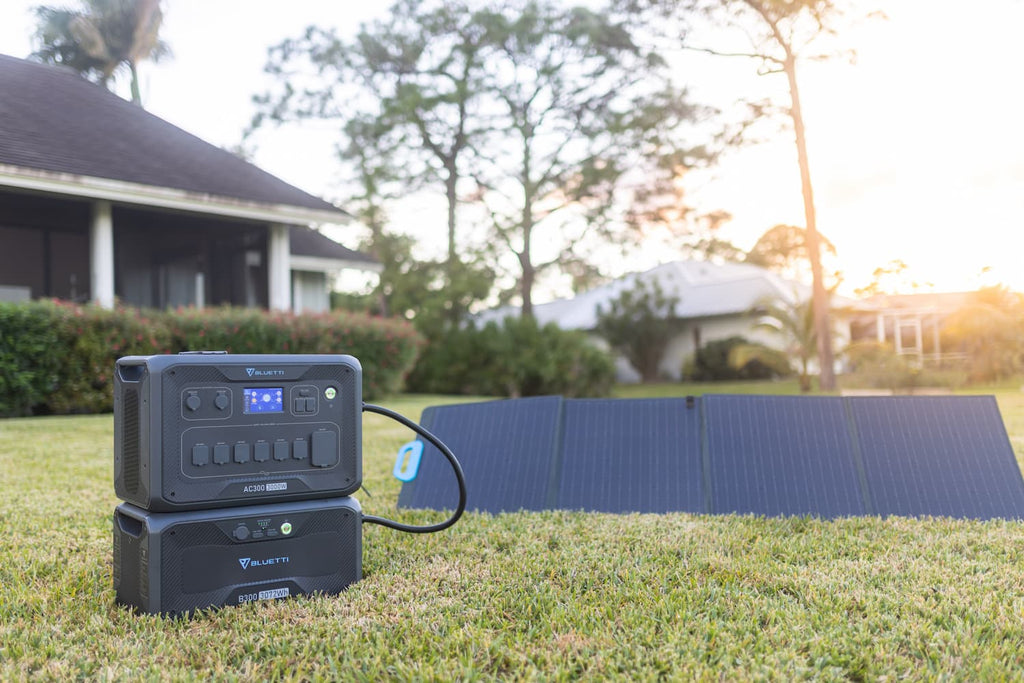
Solar off-grid systems use batteries to keep extra power made when the sun is shining. This energy can be used later on cloudy days or at night time. These batteries, like deep-cycle lead acid or lithium-ion ones, do. They store DC power changed from solar panels. Good energy storage keeps the power going, making a living without a connection to a grid easy and trustworthy. Checking your battery regularly, watching the charge levels, and picking out a good type of battery is very important for getting the best results. Picking the right battery size is important to meet energy needs, giving a smooth experience in faraway places without power from usual electricity connections.
Types of Batteries for Solar Off-Grid
Lead-acid Battery
Frequently used in electronic gadgets like computers and cell phones, lithium-ion batteries are a rechargeable battery. They're also a common component of many electric cars and home solar systems.
The high energy density of lithium-ion batteries—their ability to store a lot of energy in a small amount of space—is one of its primary benefits. They are a fantastic option for situations where size and weight are crucial due to their tiny nature.
Furthermore, lithium-ion batteries are long-lasting, usually lasting five years or more in certain versions. They are immune to the "memory effect," which gradually reduces the battery's capacity to refuel. Furthermore, they require little upkeep.
Lithium Iron Phosphate Battery
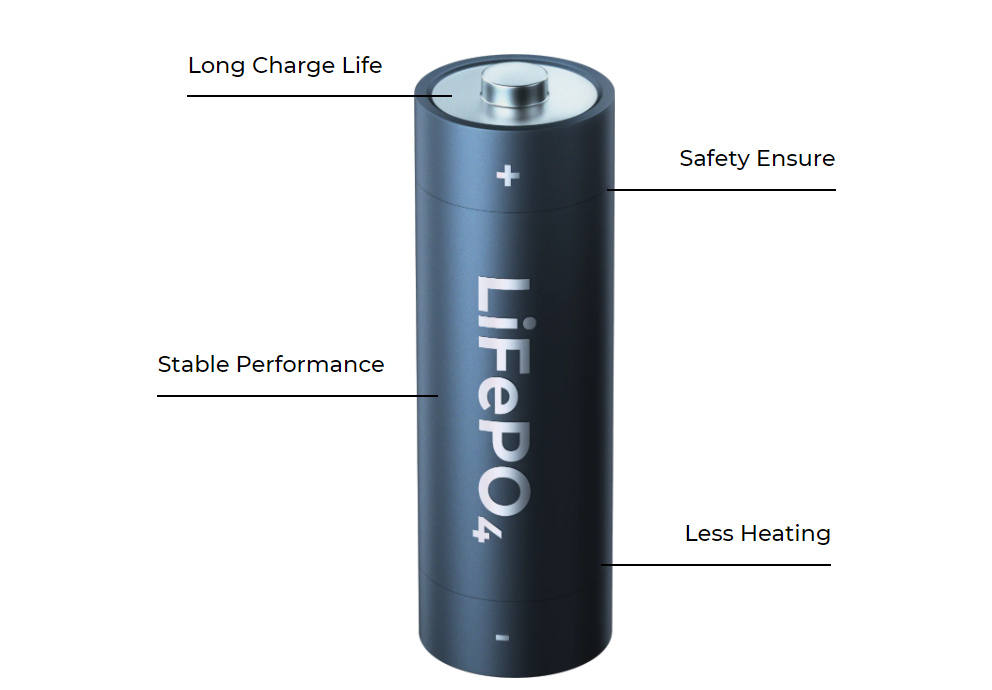
The advent of lithium-iron phosphate batteries, also referred to as LiFePO4 or LFP batteries, is a result of recent advancements in battery technology. Lithium-ion batteries and LFP batteries are not equivalent. Lithium lithium-iron batteries use a mix of iron phosphate and graphite, but lithium-ion batteries have historically been utilized. LiFePO4 batteries are a more ecologically friendly option than lithium-ion batteries found in electric cars since cobalt in lithium-ion batteries is hazardous.
Longer lifespans, higher storage efficiency, and continued performance throughout a wider temperature range are all characteristics of (LFP) batteries.
Lithium-ion Battery
Lithium-ion batteries are useful when used in off-grid solar energy systems. These features include top-notch round-trip efficiency, small size, and superior energy density. Lithium-ion batteries offer long trilithium and durable power long-term, unlike their lead-acid counterpart.
Their lightweight and small footprint make them suitable for installation in environments with limited space so that they can blend into various environments. On the other hand, this rather good performance is still accompanied by a slightly higher price than different types of batteries.
But when you think about energy solutions for your off-grid experience or eco-friendly living, the lithium-ion battery is a trustworthy alternative that combines efficiency, time-saving convenience, and durability with a higher initial expense.
Nickel-iron Battery
These batteries have their merits when it comes to such a long lifespan, having durability over several decades and making them perfect candidates for stand-alone solar systems. Nickel-iron batteries stand out due to their hardiness in difficult situations. They are highly benign in extreme temperatures, deep discharges, and overcharging performance levels hardly seen with other battery types. Most importantly, they bravely confront sulfuration, a problem that often affects their counterparts.
However, managing the trade-offs is indispensable. Nickel-iron batteries are only one of the most effective in efficiency and energy capacity. At the same time, their upfront costs are slightly higher than those associated with other types of battery available. As such, regarding the ideal fit for your solar dreams, Edison batteries give you dependability wrapped up within an old-world aura.
Pros and Cons LiFePO4 Battery
Lithium LifePO4 batteries are the newest type of solar battery for off-grid use. Right now, they are the most dependable batteries available for solar systems. Here's why:
Pros
- LIFEPO4 battery has a seemingly unlimited life expectancy, which grows longer as time goes on.
- This marvelous companion saves you from worrying if they're under or overcharging, as it always stands guard against potential glitches.
- Safety is front and center – non-toxic and safe, this battery gives a stress-free session focusing on your health.
- Need power in a flash? It boasts fast charging to meet all your energy needs, regardless of whether it is used often, for short or extended periods.
- And say goodbye to the bother of regular replacements – this steadfast friend doesn't need constant care or bearing up under any pressure.
- This battery becomes an art form of efficiency, translated into energy efficiency with real advantages for your daily application.
- This battery lives under any climate, either hot or cold, and thus can be the best mate for any environment you may travel.
However, every product also has some weaknesses. Some downsides of LiFePO4 battery are:
Cons
- Higher upfront cost
- More weight than other lithium-ion batteries
- Limited Availability
How to Do Batteries for Solar Off-Grid Work?

Off-grid solar batteries capture the energy the sun produces during daylight for later use. When the panels come into contact with sunlight, they generate direct current (DC) electricity. The charge controller controls this flow to prevent overcharging. The battery bank then accumulates the DC energy and, when necessary, transforms it into AC using an inverter. This stored energy feeds appliances and devices when there is no sunlight. It's repetitive as batteries always recharge and discharge to ensure constant power supply. Optimizing battery performance in off-grid solar systems requires proper sizing, maintenance, and monitoring.
Best Batteries for Solar Off-Grid with BLUETTI
BLUETTI AC500 + B300S
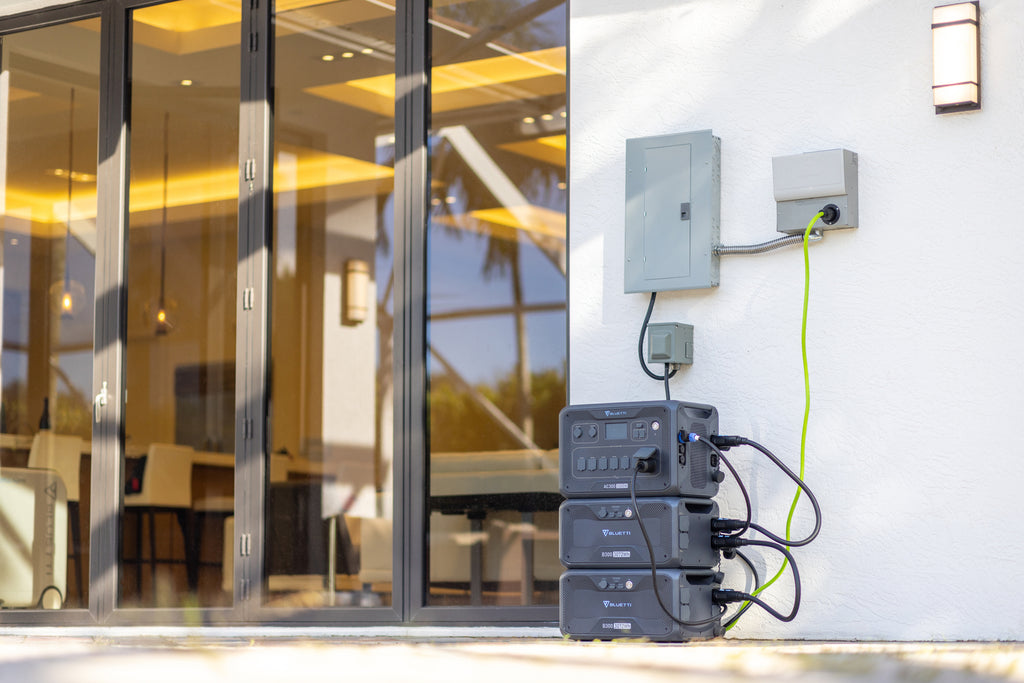
Shift to solar energy with the BLUETTI AC500 & B300S storage systems. 100% modular and ready for outages or adventures, it can accommodate up to 6×B300S expansion packs (3,000Wh each), so you get a massive capacity at 184Fwh. 240V appliances can be powered easily with two connected AC500 units. 12B300S batteries provide 36,864Wh to reduce electricity overheads. Charge anytime, anywhere – wall outlet or solar panels – boasting an astonishing 800W input rate. Pack it up for camping, and your power is always ready when you are.
BLUETTI EP500Pro
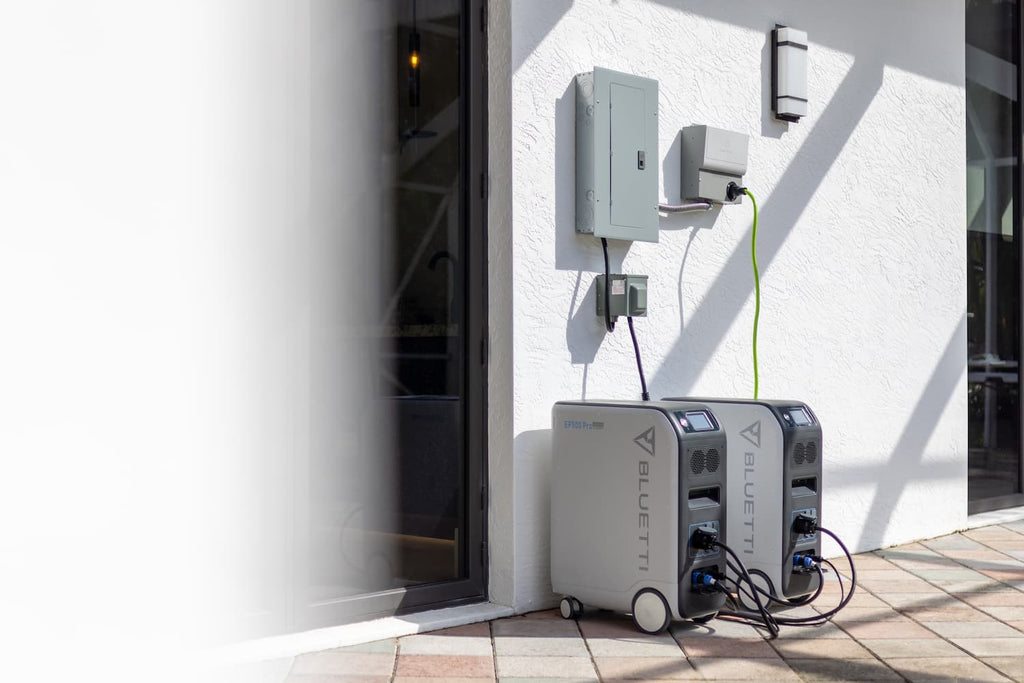
Power your event, camping holidays, classes, or home with a high-quality BLUETTI EP500PRO solar storage system. It has a revolutionary 5100Wh LiFePO4 battery pack and a 3000W AC inverter. Advanced Battery Management System and LiFePO4 chemistry provide unmatched safety and durability. No fuel, no noise – lights on the laptop charged and essential loads powered up during unexpected outages. A fast recharge for up to 1200W MPPT solar input always provides uninterrupted energy at home whenever the grid fails.
BLUETTI EP900 + B500

Want to Avoid overspending on high energy bills, prepping for power outages, or protecting against price spirals? Trust the Energy Storage System BLUETTI EP900&B500. The capacity of 10-20kWh offers up to 9,000W power and compatibility with those operating on a higher voltage – like 24OV and lower one such as -. Daily tasks shall never be an issue for you with this product. This handy portable generator is built with state-of-the-art LiFePO4 battery tech, giving you full power and a reliable 10-year warranty for those looking to back up their homes. It also promises portability, reliability, and readiness whenever life changes course – EP900. Plus, it's modular so that you can increase your capacity as the energy needs of your home change.
Related articles: Beginners Guide to Solar Power Systems for Off-Grid Living
What Is the Best Solar Generator for Off-Grid Living?
How Much Does an Off-Grid Solar System Cost in 2024?
What Needs to Consider When Buying the Best Batteries for Solar Off Grid?
Battery Type
For solar battery systems, there are many kinds of batteries. These include lead-acid, lithium-ion and nickel iron among others. Each kind has its own features, like price, how long it lasts, the energy it saves and what upkeep is needed. Look into and compare different kinds of batteries.
Power Capacity
When looking at your energy requirements, take a few minutes to understand the capacity and power needs of your battery. Consider the details, such as sizing of your solar system, energy use habits and unique power needs you may have.
Cost
Let's discuss the price – not only about shelling out money at first. Take into consideration the initial costs of owning the battery as well as added expenses that may arise later on such maintenance or replacement parts.
Efficiency
Quality is the word – high-energy storage and utilization capabilities should be emphasized by their maximum and minimum power capacities. Choose efficiency by selecting a battery that works most effectively, consuming less energy when charging and discharging.
Life Span
Not to mention, about lifespan – that’s an important point. The lifespan of batteries such lithium-ion often outlive their counterparts, lead acid; it’s wise to check the life span. Nobody likes the trouble of frequently changing batteries, correct? So, go for a battery that fits your longevity plan so as to have a continuous and unbroken journey of power.
Final Thoughts
Select the perfect battery for his off-grid solar system. Lithium-ion batteries are in high demand due to their longer lifespan and higher energy density. Lead-acid batteries cost less but need maintenance. Consider life cycle, effectiveness, and capacity. Your best option will largely depend on your needs and what you can afford. Take into consideration the advantages and disadvantages, quantify your power demands and ensure that your off-the grid setup has a reliable energy storage mechanism in place. A well thought about decision ensures that you are efficient and on par with your green goals as well the trends in energy use.
Shop products from this article
You May Also Like

What Does a 30% Federal Solar Tax Credit Mean and How to Apply?
Governments around the world are offering programs that encourage homeowners to switch to solar energy. Among the most notable programs is the 30% Federal Solar Tax Credit. It reduces your...

Deadly Flooding Devastates U.S. South and Midwest — What You Need to Know

















































































